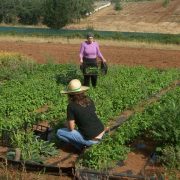The European Commission recognizes the “essential” work of cooperatives in the sector
The European Commission’s study “on the best ways for producer organizations to form, carry out their activities and receive support”, presented this Monday at the Committee on Agriculture of the European Parliament, recognizes that producer organizations such as cooperatives, they benefit producers because they generate added value to their products, reduce costs and provide services that would be difficult to achieve individually.
Cooperatives Agro-alimentary of Spain has transferred in numerous occasions and forums the advantages of the organization of the farmers and considers very positive that once again the Parliament and the European Commission support the cooperatives and recognize the organizations of essential producers in the rebalancing of the food chain.
The study points out that one of the “problems” in the EU is the atomization of producers, many sell and few who buy, there are about 10 million heavily fragmented farms and, however, few industrial and food distribution companies .
In 2017, some 3,400 producer organizations (POs) were recognized in the EU, with France at the top with more than 759, followed by Germany with 658 and Spain with 588. However, in other countries there are very few or practically nonexistent as in Lithuania, Estonia and Luxembourg. The sectors where there are more POs recognized in the EU are fruits and vegetables with 1871, the dairy sector with 334, olive oil with 254, 22 in wine, 210 in beef, 177 in cereals, 101 in pork and 89 in sheepmeat and goat, and another 267 are distributed in other sectors.
The study determines that most of the legal entities of the POs in the EU are cooperatives, although there are also other legal forms that are not, depending on each country. Thus, it is found that in the countries of the east of the EU this figure predominates less due to its political past, and that in countries such as Germany and Denmark there are few POs recognized outside the fruit and vegetable sector that are cooperative, due to the lack of incentives to be recognized as OP.
Among the reasons why farmers recognize associating with producer organizations, they highlight increasing their weight in the food chain, reducing production costs, obtaining better prices, more added value, greater market knowledge, greater resilience in case of crisis, greater taking advantage of market opportunities and greater ability to adapt its production to customer demands through quality certifications. The study also identifies other benefits such as greater access to sources of financing, greater access to investments, fewer competitors nearby and that the decisions are made by themselves.
The study also considers other benefits of these organizations for society in general, since the association of farmers and the implementation of common projects have a greater impact on rural areas because they generate employment and a greater environmental benefit as common treatment projects. of byproducts. In this regard, he gives some concrete examples of the advantages such as apple prices for OP members in Poland are 5 cents more than non-associates.
The study also identifies the main reasons why there are farmers who do not want to associate such as information on the benefits and possibilities that POs can offer, the lack of perceived short-term benefits and the loss of decision-making capacity and autonomy.
In the debate the members of the Committee on Agriculture have highlighted that POs as cooperatives are a key instrument to face the challenges faced by farmers and a tool to generate value to producers as indicated in the Covenant Green (Green Deal).
Cooperatives Agro-alimentary of Spain considers positive that the Commission supports these figures proposing in the PAC reform to expand the OP system of fruits and vegetables to the rest of the sectors, but at the same time calls for improvements and more incentives for their development such as establishing conditions of recognition that these POs must commercialize the production of their partners and give greater specific incentives to the policies of the EU and the Member States for their development and improve their size.














